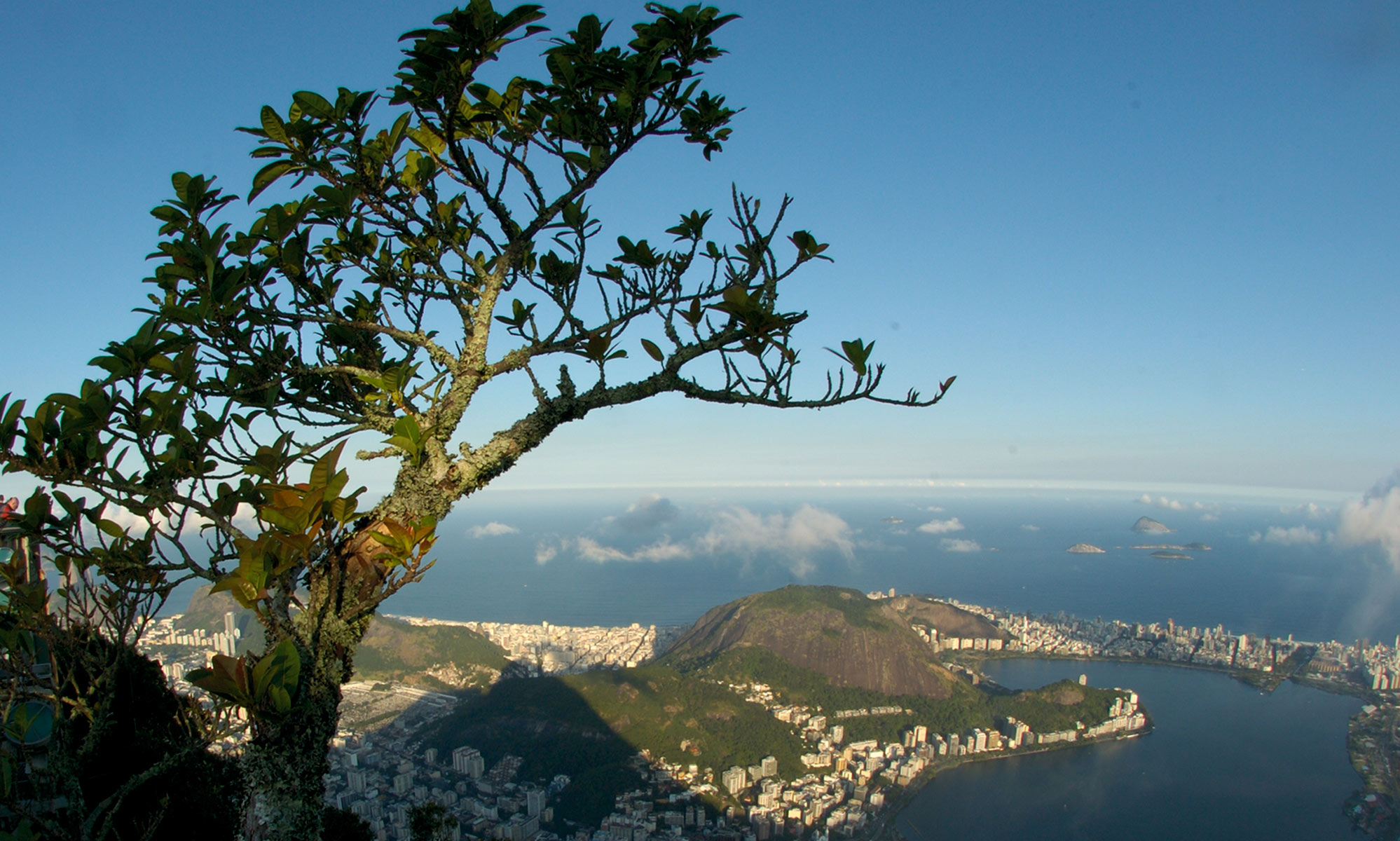Misiaszek, G. W. (2022). What cultures are being reproduced for higher education success?: A comparative education analysis for socio-environmental justice. International Journal of Educational Research, 116, 1-11. https://doi.org/https://doi.org/10.1016/j.ijer.2022.102078
Misiaszek, G. W., & Rodrigues, C. (2022). Six critical questions for teaching justice-based environmental sustainability (JBES) in higher education. Teaching in Higher Education, 1-9. https://doi.org/10.1080/13562517.2022.2114338
Misiaszek, G. W. (2022). Ecopedagogy: Freirean teaching to disrupt socio-environmental injustices, anthropocentric dominance, and unsustainability of the Anthropocene. Educational Philosophy & Theory. https://doi.org/10.1080/00131857.2022.2130044
Misiaszek, G. W. (2022). Contested terrains of environmental pedagogies: Comparing ecopedagogy, education for sustainable development (ESD) and environmental education. In L. I. Misiaszek, R. F. Arnove, & C. A. Torres (Eds.), Emergent trends in comparative education: The dialectic of the global and the local (5th ed., pp. 23-39). Rowman & Littlefield Publications. https://rowman.com/ISBN/9781538145579/Emergent-Trends-in-Comparative-Education-The-Dialectic-of-the-Global-and-the-Local
Misiaszek, G. W. (2022). Ecopedagogy: Critical Environmental Pedagogies to Disrupt Falsely Touted Sustainable Development. In A. A. Abdi & G. W. Misiaszek (Eds.), The Palgrave Handbook on Critical Theories of Education (pp. 301-317). Springer International Publishing. https://doi.org/10.1007/978-3-030-86343-2_17
Misiaszek, G. W., Misiaszek, L. I., & Iftekhar, S. N. (2022). “Hard spaces” of Global Citizenship Education: A comparative analysis through ecopedagogical, linguistic, and feminist lenses. In C. Lütge, T. Merse, & P. Rauschert (Eds.), Global citizenship in foreign language education : concepts, practices, connections (pp. 201-225). Routledge.
Misiaszek, G. W., & Iftekhar, S. N. (2022). Ecopedagogy: teaching for socio-environmental civic actions through local, global and planetary lenses. In R. Desjardins & S. Wiksten (Eds.), Handbook of Civic Engagement and Education(pp. 94-105). Edward Elgar Publishing. https://doi.org/10.4337/9781800376953
Misiaszek, G. W., Epstein-HaLevi, D. Y., Reindl, S., & Jolly, T. L. (2022). Ecopedagogy Disrupting Postdigital Divides of (Neo)Coloniality, (Eco)Racism, and Anthropocentricism: A Case Study. In P. Jandrić & D. R. Ford (Eds.), Postdigital Ecopedagogies : Genealogies, Contradictions, and Possible Futures (pp. 121-145). Springer International Publishing. https://doi.org/10.1007/978-3-030-97262-2_7
Misiaszek, G. W. (2021). Ecopedagogical literacy of a pandemic: Teaching to critically read the politics of COVID-19 with environmental issues. The Journal of Environmental Education, 52(5), 358-369. https://doi.org/10.1080/00958964.2021.1981206Misiaszek, G. W. (2021). An ecopedagogical, ecolinguistical reading of the Sustainable Development Goals (SDGs): what we have learned from Paulo Freire. Educational Philosophy and Theory, 1-15. https://doi.org/10.1080/00131857.2021.2011208
Misiaszek, G. W. (2021). Editorial: De-distancing ‘us’ from the rest of Earth: ecopedagogical analysis and approaches. International Studies in Sociology of Education, 1-13. https://doi.org/10.1080/09620214.2021.1880333
Misiaszek, G. W. (2020). Ecopedagogy: Critical Environmental Teaching for Planetary Justice and Global Sustainable Development. London: Bloomsbury. (within the Book Series: Bloomsbury Critical Education; Series Editor: Peter Mayo (Professor and Department Head, University of Malta, Faculty of Education)) ISBN: 9781350083813; www.bloomsbury.com/uk/ecopedagogy-9781350083813;
Misiaszek, G. W. (2020). Countering post-truths through ecopedagogical literacies: Teaching to critically read “development” and “sustainable development”. Educational Philosophy and Theory, 52(7), 747-758. https://doi.org/10.1080/00131857.2019.1680362
Misiaszek, G. W. (2020). Ecopedagogy: teaching critical literacies of ‘development’, ‘sustainability’, and ‘sustainable development’. Teaching in Higher Education, 25(5), 615-632. https://doi.org/10.1080/13562517.2019.1586668
Peters, M.A., Rizvi, F., McCulloch, G., Gibbs, P., Gorur, R., Hong, M., Hwang, Y., Zipin, L., Brennan, M., Robertson, S., Quay, J., Malbon, J., Taglietti, D., Barnett, R., Wang, C., McLaren, P., Rima Apple, Papastephanou, M., Burbules, N., Jackson, L., Jalote, P., Kalantzis, M., Cope, B., Fataar, A., Conroy, J., Misiaszek, G.W., Biesta, G., Jandrić, P., Choo, S., Apple, M., Stone, L., Tierney, R., Tesar, M., Besley, T. & Misiaszek, L.I. (2020). Reimagining the new pedagogical possibilities for universities post-Covid-19. (Misiaszek, G.W. COVID-19 foreshadowing Earth’s environmental tipping point: Education’s transformation needed to avoid the ledge) Educational Philosophy and Theory, 1-44. https://doi.org/10.1080/00131857.2020.1777655
Misiaszek, G. W. (2020). Reconstructing Shallow Environmental Pedagogies into Critical, Transformative Environmental Learning Spaces for Praxis. In A. Abdi (Ed.), Critical Theorizations of Education (pp. 58-72). The Netherlands: Brill. (https://doi.org/10.1163/9789004447820_005)
Misiaszek, G. W. (2020). Locating and diversifying modernity: Deconstructing knowledges to counter Development for a few. In M. A. Peters, T. Besley, P. Jandrić, & X. Zhu (Eds.), Knowledge Socialism – The Rise of Peer Production: Collegiality, Collaboration, and Collective Intelligence. Singapore: Springer Nature. (https://doi.org/10.1007/978-981-13-8126-3_13)
Misiaszek, G. W., & Torres, C., A. (2019). Chapter five: The missing chapter of Pedagogy of the Oppressed. In C. Torres, A. (Ed.), Wiley handbook of Paulo Freire. New Jersey: Wiley. https://doi.org/10.1002/9781119236788.ch25
Misiaszek, G. W. (2018). Educating the global environmental citizen: Understanding ecopedagogy in local and global contexts. New York: Routledge. (within the Book Series: Global Citizenship Education, Globalization and the Politics of Equity and Inclusion; Series Editor: Carlos Alberto Torres (UCLA Distinguished Professor of Education, UNESCO Chair of Global Learning and Global Citizenship)); ISBN: paperback (9780367887629), hardback (9781138700895); eBook (9781315204345) www.routledge.com/Educating-the-Global-Environmental-Citizen-Understanding-Ecopedagogy-in/Misiaszek/p/book/9781138700895
Misiaszek, G. W. (2018). A critical scholar’s journey in China: A brief Freirean analysis of insider-outsider tensions. Educational Philosophy and Theory, 50(12). https://doi.org/10.1080/00131857.2018.1434075
Misiaszek, G. W. (2016). Ecopedagogy as an element of citizenship education: The dialectic of global/local spheres of citizenship and critical environmental pedagogies. International Review of Education, 1-21. doi:10.1007/s11159-016-9587-0. https://doi.org/10.1007/s11159-016-9587-0
Misiaszek, G. W. (2015). Ecopedagogy and Citizenship in the Age of Globalization: Connections between Environmental and Global Citizenship Education to Save the Planet. European Journal of Education. 50(3). https://doi.org/10.1111/ejed.12138





